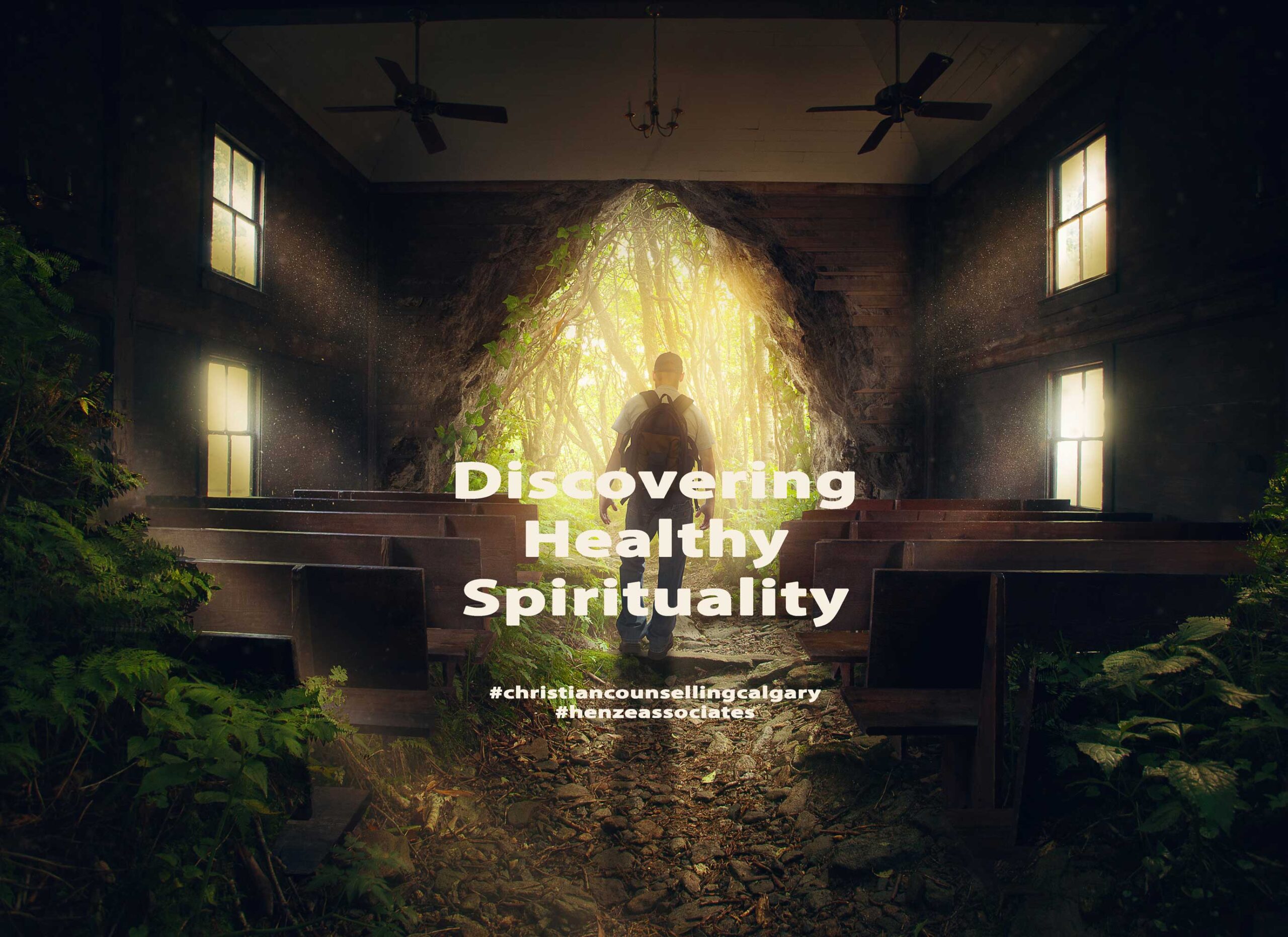Christian Counselling Calgary: Here’s a dirty little secret of my profession: Unlike the general population, psychologists are vastly less likely to hold to any religion. Furthermore, compared to the broader community of general scientific researchers, psychologists are still over 30% more likely to define themselves as atheists than nearly any other group of scientists.
 When we look within that group of psychologists who self identify as Christian, the numbers get even more stark. Even among the relative few (27% less than the general population) who hold to Protestant beliefs, even fewer are willing to brand themselves as Christian psychologists. When questioned about their faith, many will recoil and state that even talking about such would breach ethics.
When we look within that group of psychologists who self identify as Christian, the numbers get even more stark. Even among the relative few (27% less than the general population) who hold to Protestant beliefs, even fewer are willing to brand themselves as Christian psychologists. When questioned about their faith, many will recoil and state that even talking about such would breach ethics.
Something is happening here!
Christian Counselling Calgary: Discovering healthy spirituality, in the jungles of religion.
Over the years, many have tried to explain these facts away. Some have suggested that it’s only natural for people who study things like human behaviour to approach them in an abstract analytical way. But, research attempting to prove such found that roughly equal percentages of psychological researchers and clinicians want nothing to do with God. Others have suggested that free-thinking, highly educated people are simply beyond religion’s lures. Yet large percentages of scientists identify as Christians – so much so that 65% of Nobel Laureates studying the natural sciences (this includes mathematicians, chemists and biologists) are Christians. Most notably, 75% of chemists identify as Christian!
So, if science does not, in any way, predispose one to atheism, what is happening?
Psychology, as a science, is generally held in the lowest regard by other scientists. Our research data is ridiculed as fluffy and subjective. Our measurement tools are seen as culturally skewed. The results from them are treated as mere opinions by the practitioners of so-called “hard sciences.” Psychologists are seen as personally invested and regarded as advancing social causes instead of dispassionately presenting facts.
Though somewhat overstated and self-serving, it’s difficult to argue with many of those accusations. After all, Psychology is the lowest paid medical profession in North America; none of us got into it for the money. The vast majority of psychologists got into this field because we passionately care about people and society’s good. While we practice science, most of us (including the researchers) would be much more likely to describe ourselves as health care professionals than as scientists. We’re not, in any way, impartial about human good, and utterly unrepentant about it.
If a group of people dedicated to the improvement of human existence demonstrates so high of a degree of resistance to something that over 90% of humanity sees essential, maybe they deserve to be heard?
 What’s happening is quite simple. From the moment any psychology student begins their training, they are continuously exposed to how malleable the human mind is. It takes mere months for them to discover how easily people can be controlled and manipulated. We study the power of words and how people like Jim Jones induced so many to take their own lives. We analyze serial killers and how they seduced their victims. We study social media’s power and how it routinely induces over half of the population to consistently vote against their best interests. We study professional ethics, and we research religion, both its beauty and how destructive of a force it has been down through the ages.
What’s happening is quite simple. From the moment any psychology student begins their training, they are continuously exposed to how malleable the human mind is. It takes mere months for them to discover how easily people can be controlled and manipulated. We study the power of words and how people like Jim Jones induced so many to take their own lives. We analyze serial killers and how they seduced their victims. We study social media’s power and how it routinely induces over half of the population to consistently vote against their best interests. We study professional ethics, and we research religion, both its beauty and how destructive of a force it has been down through the ages.
And, because we also study how communities can be created where people are allowed to thrive, that learning about religious control sickens and infuriates us. It infuriates us because we see the systems of shame, fear and guilt-based control delivered every Sunday morning. It angers us because we understand the double-bind situations it traps people in. It disgusts us because we have seen how performance-based religion has been used to create mental illness and render people controllable. Most importantly, we are sickened because of how the selfish arrogance, shameless greed and political games of these so-called leaders undermine the entire message of grace and freedom Christ came to bring.
To put all of this in the most simple terms, aversion towards religion exists because we hate the spiritual abuse we see almost everywhere we look within the hallowed halls of Christianity.
Just in case there was any doubt, the few who identify as Christian Psychologists generally hold an even more abiding hatred for how perverted Christ’s mission has become. They love and follow Christ, but they hate how shame, fear and guilt-based Christianity has controlled and destroyed people. And they long for those people to know a healthy spirituality and relationship with God that can heal and transform as nothing else can!
Before we go on, take a moment to view this WebStory for a clear definition of what Spiritual Abuse is:
View Christian Counselling Calgary’s Web Story: Spiritual Abuse in a separate window.
Christian Counselling Calgary: So, what are the critical elements of healthy Christian spirituality?
Intimacy with God:
Two of the most central concepts in Christianity are as follows:
(1). Christ’s sacrifice was once and for all. (Heb 10:10)
(2). Through such, He redeemed the whole world unto Himself. (2 Cor 5:19)
These are not controversial or in any way disputed – we just ignore their impact. The message is simple: God looked at how our guilt had separated us from a relationship with Him and took decisive action such that, no matter what you did or what was done to you, nothing would ever prevent you from rushing into his presence, climbing up on his lap, wrapping your arms around Him and being loved by Him.
It doesn’t matter who you are or what you have done. It’s irrelevant how bad you feel about yourself or what anyone thinks about your lifestyle or sexual choices. There is no concern about your addictions, whether you have said some prayer or even if you acknowledge His existence. God is continually seeking a direct conversational intimacy with you.
Christ came to destroy religion – not to start a new one. His goal was to replace religion with relationship – because a relationship with you literally mattered more than life itself.
Release from guilt and judgment:
One of the twelve most universal experiences of humanity is the feeling of guilt. Children display it from some of the earliest ages. It is usually accompanied by a fear of rejection from an essential relationship with his or her parents. Guilt is the result of a violation of an internalized set of rules or standards for behaviour. In a spiritual sense, guilt is seen as a breaking of moral standards, causing a person to be under God’s judgment.
Guilt is one of only three ways any person can be controlled by another. The threat of judgment has been a staple of religious control since the dawn of recorded history. Thus, the removal of sin is foundational to healthy spirituality because anything else is a hostage situation, not intimacy with God.
Christ described Himself as having taken away the sin of the world. (Jn 1:36) In Romans, Paul takes this concept even stating we have died to both the law, which defined sin and to sin itself. (Rom 7) The impact is simple: We can never again violate a rule we are not under, so we will never experience the judgment of God again. Either now or in eternity, nothing will ever separate us from the love of God. (Rom 8:31-39)
Release from expectations and shame:
 Every other major religion in the world has a version of Karma embedded in it. There is a list of things you need to do to be a good person, achieve God’s favour, be saved, or avoid God’s judgment – or bad things will happen. Christianity has none. (Rom 5:1) Relationship with God is by faith alone – and even that faith itself is not a belief or something you have to conjure up inside yourself. (Gal 2:16) It is a gift from God that you had absolutely nothing to do with. (Rom 11:6) Even atheist scholars recognize the uniqueness of this.
Every other major religion in the world has a version of Karma embedded in it. There is a list of things you need to do to be a good person, achieve God’s favour, be saved, or avoid God’s judgment – or bad things will happen. Christianity has none. (Rom 5:1) Relationship with God is by faith alone – and even that faith itself is not a belief or something you have to conjure up inside yourself. (Gal 2:16) It is a gift from God that you had absolutely nothing to do with. (Rom 11:6) Even atheist scholars recognize the uniqueness of this.
Shame is the second most useful means by which anyone can be controlled: “Do what I want, or you’ll be shown up as a bad person.” This release from expectations is foundational to a healthy Christian community. If God does everything, and you do nothing, then performance standards, giving/tithing requirements, compliance with religious authorities, mandated recitation of doctrines and service obligations to help build some monument to a spiritual leader have no place in healthy spirituality. (Gal 3:5-6)
Release from fear:
An essential teaching of the New Testament is that God is not willing that any should perish. In his writings, C. S. Lewis put this concept so well. He talked about Christ having seized the keys of hell (Rev 1:18) and torn its gates from their hinges, building a one-way freeway straight to the gates of heaven that any could walk. He contended that hell simply was never made for people (Rev 20:10) and that those who are there remain only because of God’s mercy, which allows those who hate Him the freedom to stay. The Orthodox Church puts this even more clearly with their theology of God’s relentless and loving pursuit, which extends even into hell itself.
Jesus clearly stated that He came to show us The Father – in gentleness, mercy and love. (Jn 5:19, 10:30) Contrary to the fear-based foundations of almost all world religions and in such stark contrast to the hell-fire and damnation style preaching of Fundamentalist Evangelicalism, virtually every Biblical narrative describing an encounter with a heavenly being starts with the directive: “Don’t be afraid.” (Lk 2:10) The life of Christ mirrors the absence of this threat of fear so clearly. His favourite people to hang out with were alcoholics (Lk 7:34) and prostitutes – for whom he had an almost unfathomable love. The only persons in whom he ever confronted sin or created fear were religious leaders bent on controlling others. (Matt 12:34)
Transformed by God:
 Virtually every other religion on the planet expects its adherents to transform themselves so as to impress God. Adherents are prescribed a set of steps to fix what is wrong with them or make them into different people. Christianity has a different formula: It’s God’s job to make you perfect (James 1:4), to renew your mind (Romans 12:2), to renew your strength (Isaiah 40:31) to restore your hope (Romans 15:13), to give you a new spirit and a new heart (Ezekiel 36:26) and to make you holy. (Ephesians 4:23)
Virtually every other religion on the planet expects its adherents to transform themselves so as to impress God. Adherents are prescribed a set of steps to fix what is wrong with them or make them into different people. Christianity has a different formula: It’s God’s job to make you perfect (James 1:4), to renew your mind (Romans 12:2), to renew your strength (Isaiah 40:31) to restore your hope (Romans 15:13), to give you a new spirit and a new heart (Ezekiel 36:26) and to make you holy. (Ephesians 4:23)
Essential to healthy spirituality is the understanding that God is devoted to transforming people. His heart is for wholeness. He makes it very clear that the restoration of broken people and the transformation of their behaviours is His job – not ours. Our job is to love people while he does that healing work within them.
Belongningess in community:
Our concept of a Church being a theatre with someone lecturing from the front is an invention of the Roman emperor Constantine, not Christ. As Christ set it up, the Church was a group of people who went from home to home eating and praying together. (I Cor 16:19) Healthy spirituality was and still is a community of people focused on little more than loving and giving to each other.
Before Christ, our broken relationship with God and lack of real knowledge of Him left us dependant upon man’s teaching to know him. That all changed with Christ for, in Christ, all know God and are led from within by Him. (Jer 31:34) The new heart that has been placed within us is about what God’s heart is about: loving others and creating a secure and safe community for them. Any other focus harms them.
Christian Counselling Calgary: Healthy spirituality so simple a child could grasp it:
The only way anyone can be controlled is by way of a strategic application of shame, fear and guilt that demands performance and separates you from yourself, others, and from God Himself. Long before Christ, Jeremiah spoke of what the opposite of that five element system of control would look like:
‘Behold, days are coming,’ declares the Lord, ‘when I will make a new covenant with the house of Israel and with the house of Judah, not like the covenant which I made with their fathers in the day I took them by the hand to bring them out of the land of Egypt, My covenant which they broke, although I was a husband to them,’ declares the Lord. ‘But this is the covenant which I will make with the house of Israel after those days,’ declares the Lord, ‘I will put My Law within them, and on their heart I will write it; and I will be their God, and they shall be My people. And they shall not teach again, each man his neighbour and each man his brother, saying, ‘Know the Lord, ‘for I will forgive their iniquity, and their sin I will remember no more.’ (Jeremiah 31:31-34)
The breakdown is an inescapable and unbridgeable contrast:
| Old Covenant system of control: | New Covenant system of relationship: |
| Law on stones | Law on the heart |
| Taken by the hand | Led from within |
| Covenant Broken | Covenant Kept |
| A broken relation | Unbroken Relation |
| Man’s teaching | No need for teaching |
| No knowledge of God | All Know Him |
| No true forgiveness | All sins forgiven |
| Constant reminder of sin | Sin forgotten |
Christ ended all five of those elements, instituting a community of faith based on the opposite of them. Going back to the above WebStory for a moment, this also cancels all eight aspects of spiritual abuse listed in it:
 Your crimes and misdemeanours are forgotten, and Christ is the only hero. Guilt and shame are erased, and mercy, empathy and vulnerability are central. Judgment and exclusion are but a memory, and we are already made perfect. Loving the poor and the broken is the core mission of the Church. Rich and poor all stand on level ground at the foot of the cross, stunned into silence by the insult of undeserved grace and utter freedom.
Your crimes and misdemeanours are forgotten, and Christ is the only hero. Guilt and shame are erased, and mercy, empathy and vulnerability are central. Judgment and exclusion are but a memory, and we are already made perfect. Loving the poor and the broken is the core mission of the Church. Rich and poor all stand on level ground at the foot of the cross, stunned into silence by the insult of undeserved grace and utter freedom.
The three most important words spoken in the entire New Testament were uttered from the cross when Christ said, “It is finished.” (Jn 19:30) What is it that is finished? The Old Covenant and the entire system of control that went with it.
And, if it is truly finished, then our sins are forever gone; God is shocked by nothing and doesn’t see us as sinners. He has made us holy, right, acceptable, and free and doesn’t need us to beg for forgiveness. Christianity might be so very different from the pathetic substitute we’ve gotten used to. (Click the above link for the full list of all it means)
And, if it actually is finished, then we have been freed to explore a relationship with God and others in the wide-open spaces of God’s grace and any religious leader preaching anything other than the above is playing games with the Gospel and seeking to control people.
That’s the opposite of healthy spirituality. It’s called “spiritual abuse,” and it’s just as happy to destroy couples as individuals.
Christian Couples Counselling Calgary: Discovering healthy spirituality in your relationships starts today!
 If you’re feeling beaten up by religious leaders and your most precious relationships have been battered by systems of shame, fear and guilt, perhaps it’s time to take the hands of those you love, walk out the door of that “church” and never return. Maybe it’s also time to think about taking some steps to undo the damage and rewrite the internal scripts of judgment? The freedom of grace based intimacy really is possible. You can be free from the condemnation that has kept you from living the richness of the fully human and fully alive path God created you to enjoy.
If you’re feeling beaten up by religious leaders and your most precious relationships have been battered by systems of shame, fear and guilt, perhaps it’s time to take the hands of those you love, walk out the door of that “church” and never return. Maybe it’s also time to think about taking some steps to undo the damage and rewrite the internal scripts of judgment? The freedom of grace based intimacy really is possible. You can be free from the condemnation that has kept you from living the richness of the fully human and fully alive path God created you to enjoy.
For over 23 years, we and Henze and Associates, our parent company, have been helping people break the shackles of religion and meet God again, for the very first time. Reach out today and discover the difference that Christian Counselling Calgary can bring to your life. Christian Marriage Counselling Calgary can bring to your relationships and Spiritual Direction Calgary can make in your spirituality!

